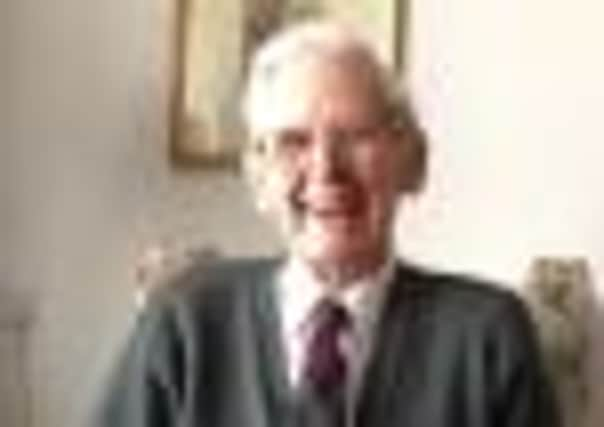Obituary: David Logan Howell DFC, Bomber Command Flight Lieutenant and ambassador for peace


David Howell, who died on 11 January aged 97, devoted himself to reconciliation between former enemies, following the Second World War.
After distinguished war service he and his wife worked to bring peace, change and understanding in many countries, especially in Latin America.
Advertisement
Hide AdAdvertisement
Hide AdAfter the Falklands War in 1982, Howell joined the South Atlantic Council, promoting understanding between Britain, Argentina and the islanders. He served as the council’s secretary for several years.
David Logan Howell was born in Scotland in 1915, the third of four children, and was brought up in Paisley where his father was minister of Paisley Abbey.
At Glasgow University he encountered the Moral Re-Armament (MRA) movement – now known as Initiatives of Change. He trained in horticulture and agriculture and worked with a firm of market gardeners in Dundee.
When war broke out this was a reserved occupation. Later he volunteered for the RAF. Subsequently he gave his full time to MRA’s reconciliation work, helping to build the peace in Europe.
A Flight Lieutenant in Bomber Command during the Second World War, he was a navigator on his 24th mission over Germany when his Lancaster plane began to ice up and went into a dive. The crew bailed out and were captured. Howell was freed by the arrival of General Patton’s forces during the Allied advance.
The German officer who interrogated Howell admitted that the war would soon be over. “What do you think will happen to my country?” he asked Howell, who replied: “I feel our countries need a new spirit based on doing what is right, running things the way God shows.”
“That is the first time I have heard that answer,” said the interrogator. Howell told the German officer how he had made a new start in life on the basis of absolute moral standards.
“They are like a beam you can always fly along,” Howell said. Overnight he wrote out what he saw for a new Germany and gave it to his interrogator. “Thank you,” he said. “My name is von Schilling.”
Advertisement
Hide AdAdvertisement
Hide AdHowell was freed by the arrival of General Patton’s forces during the Allied advance.
Nine years later Howell was in Mannheim and discovered that von Schilling was the editor of the Mannheimer Morgen.
They met and the editor told Howell that he had never forgotten their conversation. He had even presented some of Howell’s ideas in his paper.
Howell said “it was a dramatic and moving moment, marking the beginning of a warm friendship which lasted through the years”.
In 1957 he married Suzanne, daughter of Rear Admiral Sir Edward Cochrane. Their ancestor, Admiral Lord Thomas Cochrane, 1775-1860, had long connections with South American countries, helping them gain their independence. (He spent much of his early life in Culross, Fife.)
Suzanne, as a kinswoman of the great liberator, was received everywhere in South America with affection and gratitude.
David and Suzanne worked there with MRA’s bridge-building work between communities and countries. They are especially remembered in Brazil, Argentina and Chile.
Although the Howells had no children, many young Latin Americans looked on them as mentors.
Howell was diagnosed with liver cancer ten days before he died. He had the best of Scottish characteristics: a steady character and wide vision combined with humanity, humour and dignity.